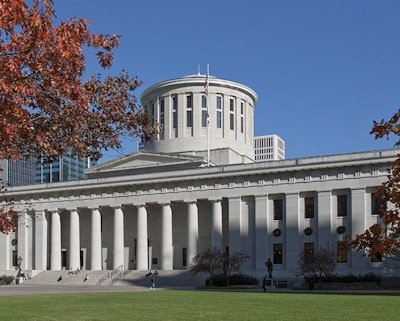
The Ohio Board of Pharmacy has established a new process for calculating a patient’s 90-day supply of medical cannabis.
The new rules take effect April 17.
The process is aimed at simplifying the way that patients, caregivers and dispensaries calculate days’ supply while ensuring that patients do not exceed the maximum 90-day possession limit outlined in Ohio’s medical cannabis law.
Under the new guidance, a patient’s 90-day supply will be divided into two 45-day fill periods. The first fill period consists of days 1-45 and the second consists of days 45-90, with the first fill period beginning when the patient receives a medical cannabis recommendation.
In each fill period, a patient can purchase up to a 45-day supply of medical cannabis, regardless of when purchases are made within the period, but once a patient purchases a 45-day supply within the fill period, he or she cannot purchase additional medical cannabis until the next period.
A patient is not required to purchase a full 45-day supply of medical cannabis within a fill period, but is only allowed to purchase a maximum of a 45-day supply during the next period, regardless of how much was purchased in the previous period.
Prior to the rule change, days when patients did not purchase medical cannabis were subtracted from their 90-day total, which prevented them from purchasing additional medical cannabis before they reached their 90-day supply limit, according to a Cincinnati.com report.
The Board of Pharmacy’s director approved the new guidance last week under a temporary resolution related to the state’s COVID-19 response, the news outlet reported, and the full board is expected to approve the change next month.
The Ohio Medical Marijuana Control Program issued additional guidance last month to help patients maintain access to medical cannabis during the COVID-19 crisis, including a temporary expansion of caregiver registration and new photo identification requirements due to the state’s closure of its BMV locations.
The Ohio Board of Pharmacy has also allowed the state’s medical cannabis dispensaries to offer curbside pickup for patients during this time.

























